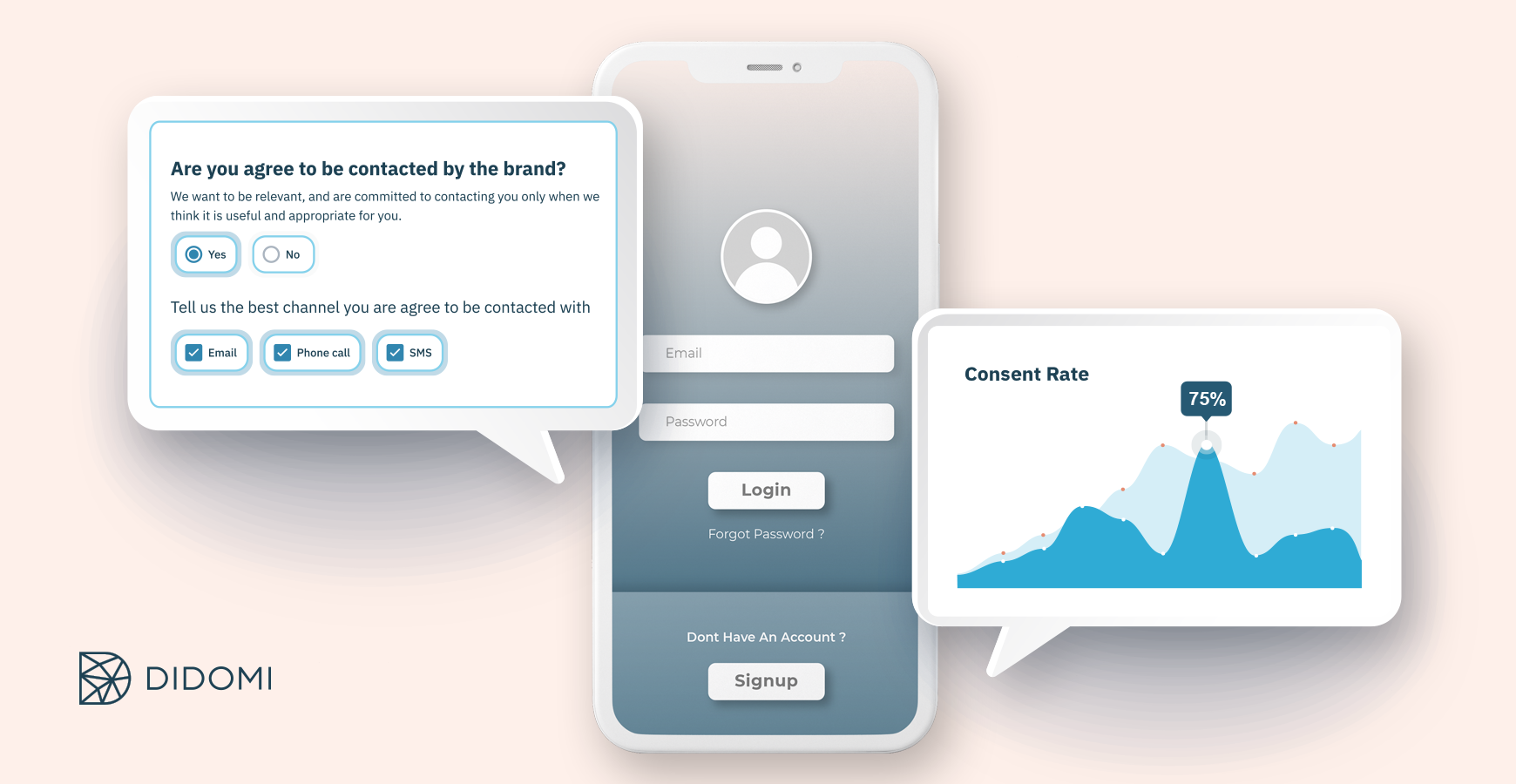Once you comply with local data protection legislation, what is the next step? How can you increase customer loyalty & time spent on your website? It's time to adopt a solution that allows users to manage preferences, as well as a model that focuses more on the user experience.
Summary:
Why opt for a model which focuses on user experience?
Data regulation is a legal and moral obligation for which all companies must be prepared. But how can your company go one step further? How can you turn privacy into a crucial competitive differentiator? How can you stand out in the marketplace through more transparent data practices?
Gartner estimates that, by 2023, 75 % of the world's population will have their personal data covered by bespoke regulation in order to deal with growing privacy concerns.
In Europe, around 80% of consumers say they pay attention to privacy before making a purchase. Users want to be informed about how their data is collected and appreciate companies that have transparent privacy practices.
%20(4).png?width=3600&name=PRIVACY%20MADE%20POSITIVE%20-%20Linkedin%20(6)%20(4).png)
Privacy practices now influence all age groups. It is not only young people who are 'privacy activists', but whole nations of individuals who say they want to be clearly informed about how their data is being used.
So, data protection authorities care, and so do your consumers. There is a regulatory and economic advantage in prioritising privacy. There is a need to go one step further, beyond mere compliance. There is a need for companies to use a model that focuses more and more on user experience.
This model requires rethinking the company's objectives and processes so that they revolve around the customer and their expectations, rather than around the company.
In practice, instead of asking yourself how to get what you are looking for from your customer (data, open rates, webinar sign-ups, etc.), you should, instead, focus on the value you give to your customer.
The more value you place in your relationship with your customer, the more they will be inclined to interact with your company. It is a relationship of trust that must be established from the very first user interaction with your brand, i.e. from the very first visit to your website and presentation of your banner.
Take a step back and ask yourself if you’re collecting good-quality data and how you are bringing value to your customer's relationship. Then try to work on that.
How can you build user trust?
Have you ever asked yourself how your customers perceive privacy in your company? And how much are they willing to pay for better privacy?
The first key principle to remember is that if users know that their data is being collected to provide them with a more optimised experience they will be much more likely to consent to data collection. More generally, if users trust your company, they will consent to the use of their personal data.
In this way, you will be able to collect personal data in a compliant way and you will be able to learn more about your users’ preferences and offer them targeted advertising based on their interests.
It is not important to collect a large amount of data; it is more important to collect fewer, but higher quality data from people who trust your brand and want to interact with your brand. After all, these are the people who are more likely to buy your product or your service, and the people you should prioritise.
We are getting closer and closer to a trust scenario where data will be put first and where all companies will have to comply with it.
To comply with this scenario, companies must adopt solutions that allow data to be collected only after a free, specific, informed and unequivocal act of manifestation by the user, as well as solutions that allow the user to manage their preferences.
The idea is to give your customer the possibility to manage their privacy and choose whether or not to be tracked on websites.
Your company should rework its privacy policies for a full clarity and invest in better legal documentation.
If you are able to gain your users' trust, it means that your revenue will also increase. Therefore, the consent rate can become a key KPI to follow.
The moment you integrate good privacy into your product or service, this will be more valuable. Don't think of it as a cost or a burden, but rather see it as a benefit for your business.
Where can you find a solution that creates a trustworthy relationship with the customer?
Didomi can provide you with consent and preference solutions that can help your organisation not only comply with the GDPR (both UK and EU), but also build a model that focuses on the user experience.
Integrating a Preference Center (PC) into your marketing activities will help improve your users' experience on your website or application. A Preference Center allows your users to centralise their preferences, consent and information in one place, where they can interact with their data, correct it and change their preferences.
The subtle shift from data-centric to customer-centric marketing will protect users' rights and also encourage companies to collect good-quality data. It will be the biggest mindset change that companies will be forced to adopt in the short-term.
Want to find out how your business could benefit from a model that focuses on user experience? Get in touch with us today. We'd be happy to show you!







